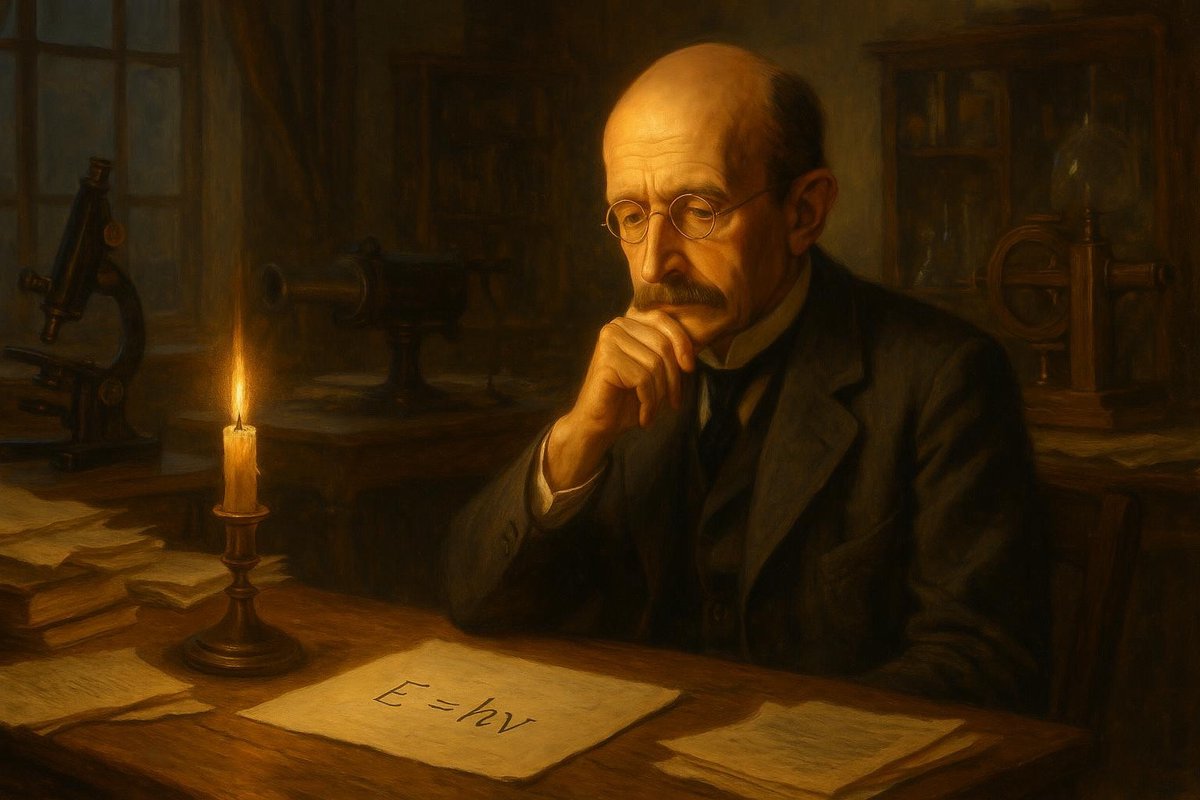
Unpacking the Question: Why Quantized Energy?
What if I told you that the very energy in light is not smooth but comes in tiny packets? This notion may sound odd at first. How can energy be chunked up? Interestingly, this question was pivotal in understanding atomic and subatomic processes. Max Planck, in 1900, introduced the concept of quantized energy, forever changing the landscape of physics. But why did this matter so much?
Before Planck, classical mechanics painted the universe as a continuous, smooth-running machine. Energy flowed like an uninterrupted river. Many believed this picture to be complete. However, as time went on, certain phenomena refused to fit neatly into this framework.
- Classical mechanics struggled to explain blackbody radiation — the way objects emit energy.
- The ultraviolet catastrophe was a term coined to describe the failure of classical physics in this domain.
No wonder the scientific community was buzzing. It was a time when old theories were being questioned, and new ideas were eagerly anticipated.
Surprising Facts: The Birth of Quantum Theory
The dawn of the 20th century was a period of intellectual upheaval. Enter Max Planck, a German physicist who dared to ask: What if energy is quantized?
In December 1900, Planck proposed that energy is not continuous but rather emitted or absorbed in discrete units called quanta. This was a radical departure from classical thought.
- Planck introduced the constant h, now known as Planck’s constant, a fundamental feature of quantum mechanics.
- His theory successfully explained the spectrum of blackbody radiation, resolving the ultraviolet catastrophe.
“An act of desperation,” Planck called it, yet it was revolutionary. The cultural backdrop of a rapidly industrializing Europe was fertile ground for such breakthroughs. Science was not just a pursuit of understanding but also a quest to harness nature’s secrets.
What Science Says: The Mechanics Behind the Quantum Leap
So how did Planck’s theory change our scientific landscape? At its core, his work suggested that the laws governing tiny particles differ from those affecting visible matter.
To visualize, imagine trying to walk through a wall of light. Classical physics would have you flow like water, but quantum mechanics? You’d bounce in specific steps, adhering to a rhythm dictated by quanta.
- The notion of quantization laid the foundation for the further development of quantum mechanics.
- Niels Bohr and Albert Einstein expanded on Planck’s ideas, leading to groundbreaking developments like the Bohr model of the atom.
This discovery also sparked philosophical debates. Was the universe inherently probabilistic, as quantum mechanics suggested, or was it deterministic? It was a question that challenged minds and imaginations alike.
What It Means for Us: The Legacy of Quantum Mechanics
Interestingly, the implications of Planck’s discovery ripple through time and technology. From semiconductors to lasers, quantum mechanics underpins the tech we rely on daily.
But beyond gadgets, this theory reshapes our understanding of reality itself. How can energy levels influence everything from chemistry to computing?
- Quantum computers, a direct descendant of this theory, promise to solve problems previously deemed insurmountable.
- The philosophical implications of quantum mechanics have fueled debates about free will and the nature of reality.
As we continue to explore the quantum world, we’re reminded of Planck’s humble beginnings. A question about energy, once seen as esoteric, has become a cornerstone of modern science.
In conclusion, Max Planck’s introduction of quantized energy levels was more than a scientific breakthrough; it was a paradigm shift. It opened doors to new realms of understanding and application. The questions it raised continue to inspire and challenge us.
Fuel Someone Else’s Curiosity
Have you ever wondered about the world of the very small and how it shapes our everyday lives? Encourage a friend or colleague to dive into the fascinating story of quantum mechanics. Share this article, spark a conversation, and let curiosity flourish in unexpected places. After all, the next big idea might just be one question away!

Leave a Reply